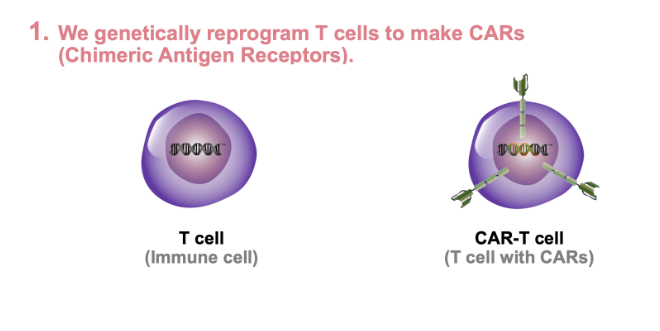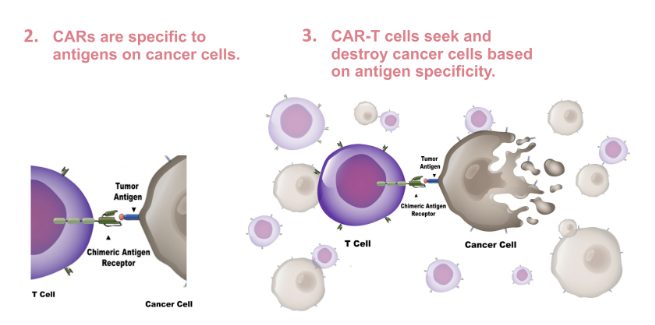Deal to Watch: Curing Canine Cancer
Key Stats:
| Valuation Cap |
Amount Raised
N/A |
Number of Investors
N/A |
|
Minimum Raise
N/A |
Maximum Raise
N/A |
Likelihood of Max
N/A |
|
Start Date
N/A |
Stop Date
N/A |
Days Remaining
|
|
Security Type
N/A |
Investment Minimum
$N/A |
Deal Analytics |
Summary
LEAH Labs has been selected as a “Deal To Watch” by KingsCrowd. This distinction is reserved for deals selected into the top 10-20% of our deal diligence funnel. If you have questions regarding our deal diligence and selection methodology, please reach out to hello@kingscrowd.com.
Problem
50% of dogs over the age of 10 will get cancer in their lifetime. It is widely agreed, the number of actual dogs with cancer is much higher, because while human cancer rates have been well tracked since the 1940’s, today there still is imperfect information on canine cancer. Additionally, the cost to diagnose cancer starts at $200, so many pet owners, on advice from their veterinarians, decide not to officially diagnose their dog. The veterinarian might advise against a formal diagnosis because current canine cancer treatment typically extends a dog’s life at most another year; it is expensive, painful for the dog and time consuming to go into the office for treatment. Below are the average costs as reported by The National Canine Cancer Foundation:

Some breeds, such as golden retrievers, are way more susceptible to cancer. 60% of all golden retrievers will die from cancer. According to the American Kennel Club, Golden Retrievers are consistently the third most popular breed in the US, behind Labrador Retrievers and German Shepherds.
38% or 48 million US Households have at least one dog, averaging 1.6 dogs per household. According to the US Pet Products Associations Annual Survey a whopping 90% of households with pets consider their pets as part of their “family.” A lot of Americans are faced with the news their furry family member is sick and there are no good treatment options to pursue.
Wall Street has Morningstar, S&P, and Bloomberg
The equity crowdfunding market has KingsCrowd.
Solution
A cure for canine cancer which works.
LEAH Labs uses CRISPR technology to reengineer T cells to CAR-T cells. The CAR-T cells seek and destroy cancer cells. Does it work? Yes in humans, probably in dogs.
CAR-T is a very new and exciting method to fight cancer in humans. Blood is drawn from the cancer patient. In the blood are the patient’s T cells, which are part of the immune system. T cells are typically damaged by cancer, thus have diminished ability to fight. The extracted T cells from the cancer patient are modified to produce special structures called chimeric antigen receptors (CARs) on their surface. The newly formed CAR-T cells are injected back into the cancer patient’s bloodstream and are well equipped to fight cancer.


The first two CAR-T therapies received FDA approval in 2017. Currently there are over 350 CAR-T human studies being conducted worldwide. CAR-T is a major cancer breakthrough in humans.
LEAH Labs is confident CAR-T therapy will also work in dogs. The team has already been able to kill canine cancer in a test tube.
Competition
According to CEO, Wesley Wierson, the only competition for LEAH Labs is the current standard of care for treatment of canine B cell lymphoma. If LEAH Labs successfully got their CAR-T therapy through USDA approval and on the market, this might be true. There are at least three University research teams currently in canine clinical trial. Additionally, a recent Wall Street Journal article on canine gene therapy research identifies several other companies focused on gene therapy.
The most direct competitor is Dr. Nicola Mason, professor at the University of Pennsylvania, who is creating a CAR-T model for treating cancer in canines.
Team
Wesley Wierson – Co-Founder earned his PhD in December 2018. Upon graduation, Wierson began working at LifeEngine Technologies, a company Dr. Ekker founded and remains CEO.
Dr. Stephen Ekker – Co-Founder, is Dean of Mayo Clinic Graduate School of Biomedical Sciences. Dr. Ekker has authored multiple patents and authored over 150 articles, according to PubMed. Dr. Ekker is also the Director, Office of Entrepreneurship at Mayo Clinic. Dr. Ekker has been editing genomes for twenty years. Additionally, Dr. Ekker has started and remains involved in other foundations and startups.
Dr. Jon Mochel – Co-Founder, is an Associate Professor of Pharmacology at Iowa State University. Dr. Mochel has started other startups and is involved with several veterinary and genome organizations. Dr. Mochel has recently worked at Roche and Novartis. He brings seasoned veterinary knowledge to the team.
Dr. Saad Kenderian – Co-Founder, is a board-certified Oncologist and Hematologist. After completing his medical training in Bagdad, Dr. Kenderian completed his residency at Michigan State before beginning his prestigious fellowship at the Mayo Clinic. Part of Dr. Kenderian’s Mayo training included fellowship training at the University of Pennsylvania under Dr. Carl H. June, who is credited for his pioneering work in the development of T-cell therapy for cancer. Dr. Kenderian is an author on a CAR-T cell patent currently being licensed by Novartis.
Wall Street has Morningstar, S&P, and Bloomberg
The equity crowdfunding market has KingsCrowd.
Why We Like it
- Y Combinator – Winter 2019, LEAH Labs was part of the prestigious Silicon Accelerator, YC (Y Combinator.) For 7% of a company YC gives $150,000 in seed money. Additionally, the recipient’s CEO is required to relocate to the Bay Area for three months to go through training to learn all aspects of transforming a great idea to a valuable business. The combined valuation of YC’s portfolio of over 2000 companies is $155B. Alumni include Stripe, Airbnb, DoorDash, Coinbase, Instacart, and Dropbox. Think Harvard’s famous alumni network for startups.
- Team – As the LEAH legend goes, in the Fall of 2017, a group of scientists from Mayo Clinic and Iowa State meet to brainstorm ways to use technology to create new biotechnological innovations. The three founding LEAH doctors, Ekker, Mochel and Kenderian decided to start LEAH Labs. Since the founding doctors are all in the prime of their careers, they selected Wierson as their CEO to gain the skills and expertise to bring LEAH Labs products to market. Wierson began his start up education through admission to the National Science Foundation (NSF) I-Corps program which prepares scientists to move their ideas from the lab toward commercialization. This is a team of well-respected scientific leaders who have successfully connected with the type of start up education necessary to be successful.
- Approval Path – Approval for human medicines must go through the FDA, which is a long, thorough and expensive process. Animal medicines go through the USDA, which is much faster and cheaper. According to Wierson, to get approval to take LEAH Labs product to market, the team must conduct an 8-dog safety study before being permitted to treat sick dogs. Wierson reports this should take a year and cost approximately $350k.Treating sick dogs does not require a control group. All sick dogs in the study can receive the CAR-T therapy, and the results will be compared to historical life expectancy data. Once the CAR-T therapy increases the life expectancy of 30 dogs, it can be conditionally licensed by the USDA while LEAH Labs continues to collect data for the full license.
The Rating: Deal To Watch
LEAH Labs is on track for success. The three scientific co-founders have significantly contributed to their respective fields. CAR-T works in humans and all research strongly indicates it will work in dogs. The co-founders appear to have understood their limitations, found a strong, young CEO in Wierson, and created a path to teach Wierson how to start a company.
Wierson has already graduated from two prestigious start up boot camps. His graduation from YC gave him the tools and access to the network to allow the scientists to do their thing, while he makes sure they have the appropriate resources.
LEAH Labs has a skeletal marketing strategy, which is fine. These are scientists, not marketers. Analogous to the human medical industry, once LEAH Labs has USDA approval, it would make sense to license their technology to a company with core competencies in marketing and distribution.
Wierson’s exit strategy is an IPO. He envisions other gene editing products from LEAH Labs. Wierson sited a comparable exit in the pet therapeutics space, Aratana, which just sold to Elanco fir $250M. Not bad.
Considering science has proven CAR-T therapy works in humans, this accomplished team of scientists will likely be able to prove CAR-T therapy works in dogs. CAR-T therapy for dogs will provide pet owners the option to cure their dog’s cancer. A cure for canine cancer likely will significantly alter veterinary recommendations about pursuing diagnosis and treatment. Considering the average pet owner spends close to $1,000 a year on their pets, the market to save their furry family member’s life should be huge.

About: Meridith Taylor
Meridith Blank Taylor has spent the past two decades providing strategic guidance to early stage businesses. Meridith has a BA from the University of Pennsylvania and an MBA in Finance from the University of Chicago.